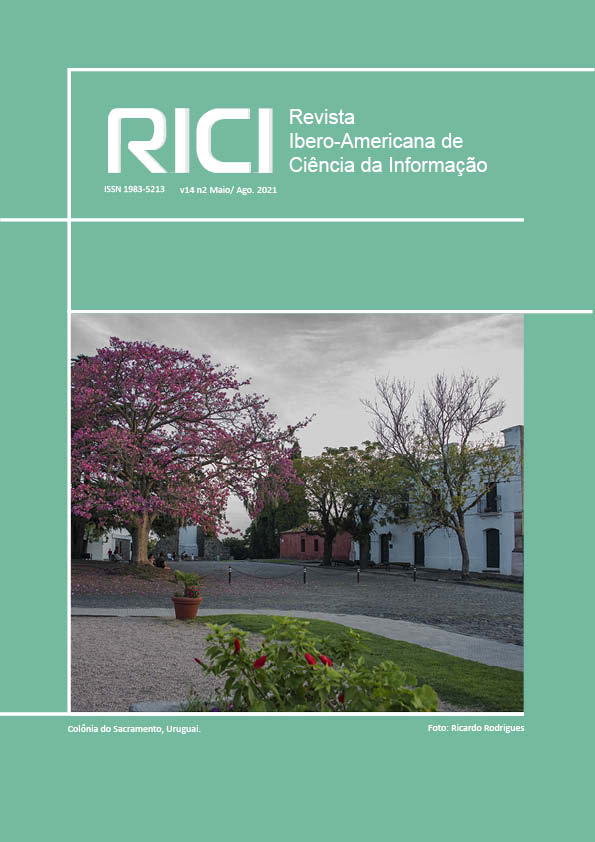The future of information literacy in the Mexican elementary school
DOI:
https://doi.org/10.26512/rici.v14.n2.2021.37557Keywords:
Information literacy, Inequality, Basic Education, Mexico, PovertyAbstract
The Coronavirus-19 pandemic in Mexico has affected all sectors, including education. As of March 23, 2020 the school stopped being face-to-face to become hybrid or mixed. Teachers, students and parents saw in a few days the irruption of technology in their lives despite the lack of electricity, connectivity, accessibility, electronic devices in homes in urban, semi-urban and rural environments and the lack of valid and validated learning strategies. The children only had their free textbooks on hand. Those who had economic resources joined virtual education without problem; underprivileged children were excluded mainly because of their poverty and inequality: without electricity, solar panels or satellite communications, connectivity or any device. Librarians have not participated in the information literacy of the tec and non tec children aged 6 to 11 years. In the future, they should develop learning activities for inclusive education in virtual, traditional or innovative environments, aimed at the formation of critical children, participants in valid knowledge, not in magical thinking that is present in the world today; They will have to decide what to teach, their role, in what medium, how, when and with what didactic supports they will information literate the millions of Mexican children between 6 and 11 years old who live in poverty, inequality and social backwardness.
Downloads
References
ARUNACHALAM, S. Information for research in developing countries – Information technology, a friend or foe?. International Information & Library Review, v. 35, p. 133-147, 2003.
COE, S.P. Marx y Engels, psicólogos. Teoría y Crítica de la Psicología, v. 5, p. 98-104, 2015.
DORNER, D.G.; GORMAN, G.E.; CALVER, P.J. Information needs analysis: principles and practice in information organizations. London: Facet Publishing, 2015. p. 26
ESTADOS UNIDOS. Census Bureau. U.S. and world population clock. 2020, 1 de Julio. https://www.census.gov/popclock/world/mx
HERMAN, E.; NICHOLAS, D. The information enfranchisement of the digital consumer. Aslib Proceedings, v. 62, p. 245-260, 2010.
LÓPEZ-PEREZ, J.; JUÁREZ-LÓPEZ, S. El Método Arenas: aplicación del PBL para la formación de científicos en países con economías en desarrollo. Bloomington: Palibrio, 2012. p. 35-36
MASLOW, A. Motivation and personality. New York: Harper & Row, 1954.
MÉXICO. Consejo Nacional de Evaluación de la Política de Desarrollo Social. La pobreza en los municipios de México. 2015. https://www.coneval.org.mx/Medicion/Documents/Pobreza_municipal/Presentacion_resultados_pobreza_municipal_2015.pdf
MÉXICO. Secretaría de Educación Pública. Libros de Texto gratuitos 2020-2021. Consultado el 25 agosto de 2020. https://www.cicloescolar.mx/2020/08/libros-de-texto-gratuitos-2020-2021.html
MORIN, E. Los siete saberes necesarios para la educación del futuro. Paris: UNESCO, 1999.
NACIONES UNIDAS. Transforming our world: the 2030 agenda for sustainable development: A/RES/70/1. Consultado el 20 agosto de 2020. https://sustainabledevelopment.un.org/content/documents/21252030%20Agenda%20for%20Sustainable%20Development%20web.pdf
NICHOLAS, D.; HERMAN, E. Assessing information needs in the age of the digital consumer. 3 ed. London: Routledge, 2009. p. 18.
WASIK, B. ; MURPHY, M. Rabid. New York: Penguin Books, 2012. p. 194
Downloads
Published
How to Cite
Issue
Section
License
Copyright (c) 2021 Judith Licea de Arenas, Hortensia Labra

This work is licensed under a Creative Commons Attribution 4.0 International License.
Copyright Notice
Authors who publish in this journal agree to the following terms:
- Authors retain copyright and grant the journal right of first publication with the work simultaneously licensed under the Creative Commons Attribution License 4.0, allowing the sharing of work and recognition of the work of authorship and initial publication in this journal.
- Authors are able to take on additional contracts separately, non-exclusive distribution of the version of the paper published in this journal (ex.: distribute to an institutional repository or publish as a book), with an acknowledgment of its initial publication in this journal.
- Authors are permitted and encouraged to distribute their work online (eg.: in institutional repositories or on their website) at any point before or during the editorial process, as it can lead to productive exchanges, as well as increase the impact and citation the published work.
















